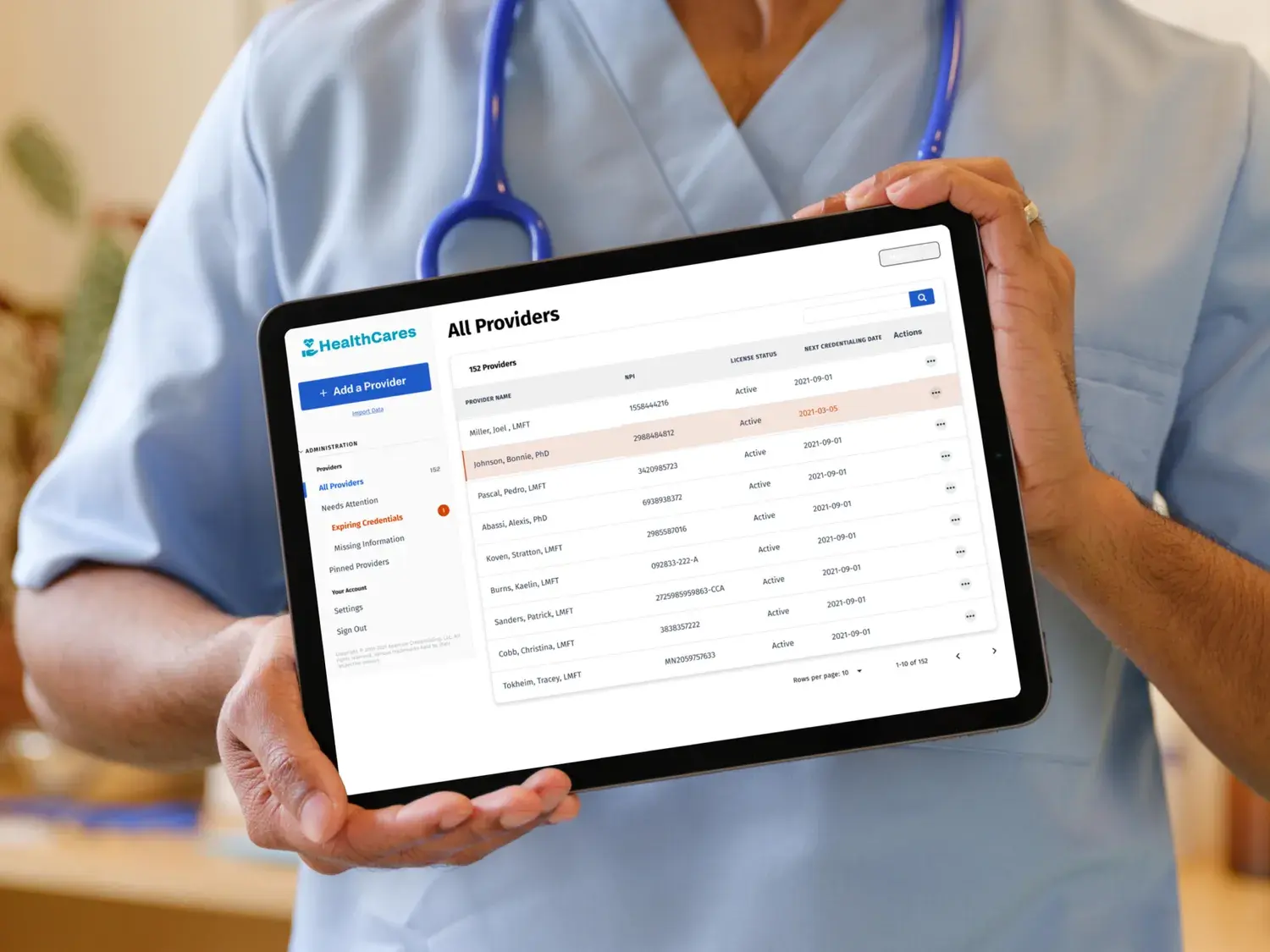
Table of Contents
Overview & Problem #
Aperture Health’s credential management system, CredSmart, was essential for healthcare providers to track, renew, and manage the expiration of medical licenses, certifications, and other critical documents. Unfortunately, the existing system was severely outdated, with some components over two decades old, leading to significant administrative overhead and frustration.
CredSmart’s outdated system significantly burdened providers and their administrative teams, diverting valuable time away from patient care toward cumbersome credentialing processes. Although straightforward to fill forms, the complex validation and approval workflows averaged around 20 days per credential. Each credential required unique follow-up actions, amplifying provider and admin frustrations and inefficiencies.
Role #
As the sole product designer on the CredSmart initiative, I collaborated closely with two product managers, a rotating engineering team of 6-10 members, sales, and Aperture’s product leadership.
Approach #
Our core hypotheses were:
- Modernize and streamline would reduce errors: Modernizing the user experience would streamline tracking of credential expirations and proactively manage renewals, reducing unnecessary interactions.
- Better data entry management was necessary: Simplifying the identification and completion of missing credential data would significantly shorten submission and approval timelines.
To validate and refine these hypotheses, we closely examined provider and administrative workflows. Initial user research faced resistance, as Aperture was reluctant to indicate workflow changes to clients. By clearly communicating the benefits and providing a detailed research plan, we successfully engaged users, yielding crucial insights:
- Providers required delegation capabilities for administrative staff.
- Admin workflows needed enhancement for efficiently populating data, particularly for new and updating providers.
- Proactive notifications about credential expiration were crucial for improving timely submissions.
Following extensive prototyping and iterative testing, we developed a solution that significantly reduced administrative overhead and proactively managed credential renewals.
I also prioritized scalability and accessibility, creating a robust design library based on the US Web Design System, adapted for Aperture’s needs, and delivered as a React component library for engineering implementation.
Results #
The engagement concluded uniquely due to Aperture Health’s acquisition before our solution’s deployment. Nevertheless, testing validated that our redesigned system would have reduced the administrative burden and credential renewal timelines by at least 75%, substantially enhancing provider productivity and satisfaction.